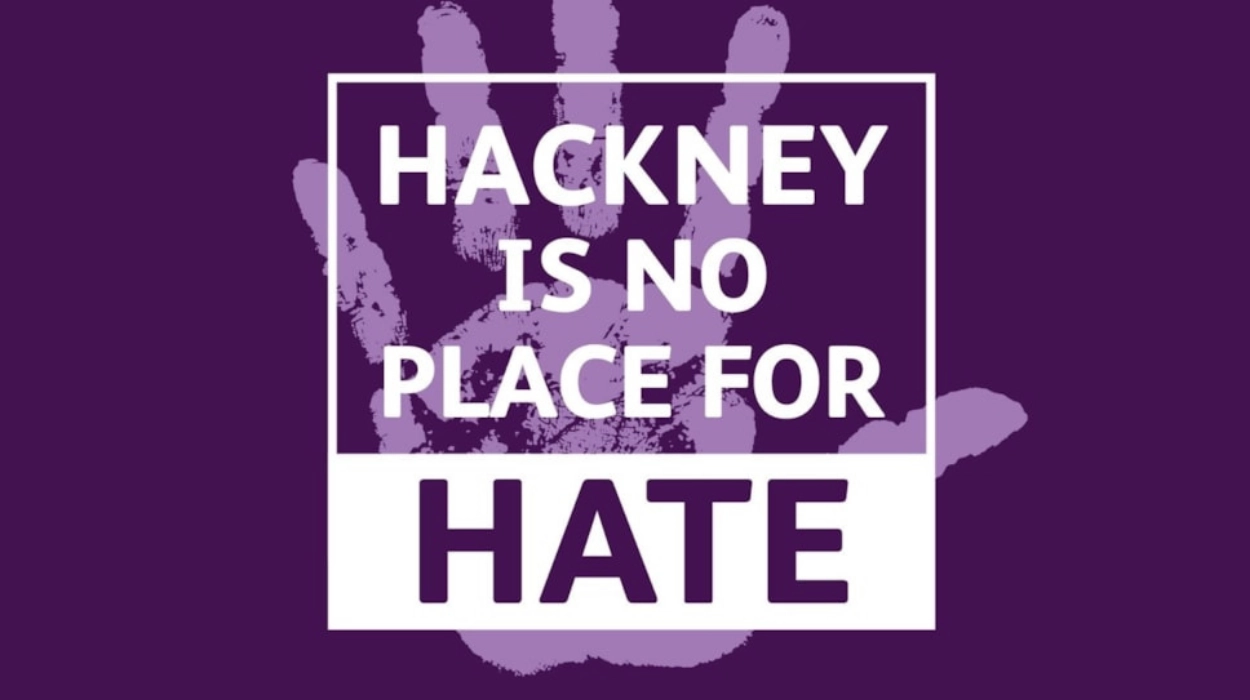Key Points
- Hackney Council is marking National Hate Crime Awareness Week (NHCAW) 2025 from 11–18 October with a series of community events focused on disability hate crime, the national theme for this year.
- As reported by Cllr Susan Fajana-Thomas OBE, Cabinet Member for Community Safety, the borough reaffirms its commitment to being a place where “everyone feels represented, included, and safe”.
- A key event will be hosted by Choice in Hackney, a disabled people user-led organisation, at the Marie Lloyd Centre on Thursday 16 October from 10:00 to 14:30, bringing together partners to support those affected by hate crime.
- The Council’s “No Place for Hate” Strategy 2023–2026 outlines four key priorities: increasing hate crime reporting, protecting victims through integrated support, building community trust, and preventing hate through education and cultural change.
- According to Hackney Council’s Serious Violence Duty Strategy 2024–2027, homophobic and transgender hate crime is the largest category in the borough, followed by racial and anti-Semitic hate crime, with a 25% increase in hate crime recorded in 2022 compared to 2021.
- Since the outbreak of the Israel-Gaza conflict on 7 October 2023, there has been a rise in reports of antisemitism and, to a lesser extent, Islamophobia in Hackney, including incidents of graffiti, flyposting, verbal abuse, and common assault.
- The Council has appointed Cllr Joseph Ogundemuren as the “No Place for Hate” Champion and plans to launch a volunteer Hate Crime Champions initiative to provide community-based support and advice.
- Stop Hate UK operates a 24/7 helpline (0800 138 1625) for confidential third-party reporting of hate crime, which Hackney Council actively promotes.
- In a joint statement, Mayor Caroline Woodley and Chief Executive Dawn Carter-McDonald condemned recent “free speech rallies” in London, stating such events incite hatred and have “no place in our borough”.
- Hackney’s diverse population includes 40% from Black and Global Majority backgrounds, 7% Orthodox Jewish residents, and at least 89 languages spoken, underscoring the need for inclusive anti-hate initiatives.
Hackney Reaffirms Commitment to Inclusivity During National Hate Crime Awareness Week 2025
As National Hate Crime Awareness Week 2025 unfolds from 11 to 18 October, the London Borough of Hackney is launching a coordinated campaign to combat hate in all its forms, with a particular focus on disability hate crime. The week’s events are part of a broader, year-round strategy to ensure Hackney remains a safe and inclusive space for all residents, regardless of race, religion, sexual orientation, gender identity, or disability status.
- Key Points
- Hackney Reaffirms Commitment to Inclusivity During National Hate Crime Awareness Week 2025
- What is driving the rise in hate crime in Hackney?
- How is Hackney responding to hate crime?
- What events are planned for National Hate Crime Awareness Week 2025?
- How is Hackney supporting victims of hate crime?
- What is the role of community leadership in combating hate?
- What are the long-term goals for hate crime reduction in Hackney?
According to Cllr Susan Fajana-Thomas OBE, Cabinet Member for Community Safety, the message is clear:
“Together, we can ensure that Hackney remains a place where everyone feels represented, included, and safe”.
This sentiment echoes the Council’s long-standing “No Place for Hate” campaign, first launched in 2018 and now underpinned by the updated Hackney “No Place for Hate” Strategy 2023–2026.
What is driving the rise in hate crime in Hackney?
Hackney has seen a 25% increase in hate crime reports in 2022 compared to the previous year, with the three main categories being homophobic and transgender hate crime, racial hate crime, and anti-Semitic hate crime, which together account for 84% of all hate-related incidents. The data, outlined in the Serious Violence Duty Strategy 2024–2027, highlights a troubling trend that has been exacerbated by global events, including the Israel-Gaza conflict.
As reported by Hackney Council’s strategy documents, since 7 October 2023, there has been a notable rise in antisemitic incidents, with some increase in Islamophobic abuse as well. These incidents range from graffiti and flyposting to verbal insults and physical assault, reflecting a broader national pattern of hate crime spikes following international crises.
How is Hackney responding to hate crime?
The Council’s response is multi-faceted, combining community engagement, victim support, and preventative education. The “No Place for Hate” Strategy 2023–2026 identifies four core priorities: increasing reporting, protecting victims, building trust, and preventing hate through cultural change.
One key initiative is the planned launch of a volunteer Hate Crime Champions scheme, which will place trained community members in neighbourhoods to act as visible points of contact for reporting and support. Additionally, a new Hate Crime Forum will be established, comprising community representatives from across the protected characteristics, to ensure accountability and community input.
Hackney has also invested in a Hate Crime Coordinator role, which has strengthened relationships with diverse communities and improved inter-agency coordination. Over 25 workshops have been delivered to council staff to enhance their understanding of hate crime and improve victim support.
What events are planned for National Hate Crime Awareness Week 2025?
This year’s NHCAW places a spotlight on disability hate crime, aligning with the national theme. As reported by Hackney Council’s official news outlet, Choice in Hackney, a disabled people user-led organisation, will host a major event at the Marie Lloyd Centre on Thursday 16 October from 10:00 to 14:30. The event will bring together support services, advocacy groups, and community partners to provide information and assistance to those affected by hate crime.
Pop-up awareness stalls will be held across the borough throughout the week, offering guidance on how to report hate incidents and access support. These events are part of a broader effort to normalise reporting and reduce the stigma that often prevents victims from coming forward.
Queen Mary University of London, located in the borough, is also participating by hosting an information stand in the Mile End Library Foyer on 14 October, providing students and staff with resources on reporting and support.
How is Hackney supporting victims of hate crime?
Support for victims is central to Hackney’s strategy. The Council works closely with Stop Hate UK, which operates a 24-hour, confidential helpline (0800 138 1625) for third-party reporting. This service allows individuals to report hate crime anonymously, which can be crucial for those who fear retaliation or distrust the police.
Hackney also provides specialist support through partner agencies such as MIND, Age Concern, Stop Hate UK, and CATCH, ensuring that victims receive tailored assistance. The Council has committed to keeping victims informed throughout the investigation process and reducing repeat victimisation through proactive outreach.
In addition, the Council is working with local businesses to establish a network of designated “safe places” where victims can seek immediate refuge and support.
What is the role of community leadership in combating hate?
Leadership from both elected officials and civil society is critical. In a joint statement published on 15 September 2025, Mayor Caroline Woodley and Chief Executive Dawn Carter-McDonald condemned recent far-right rallies in London, stating:
“Any person, organisation or campaign whose purpose is to incite hatred, violence and anti-migrant feeling has no place in our borough”.
The statement reaffirmed Hackney’s identity as a “Borough of Sanctuary,” committed to protecting migrants and standing against xenophobia. This public stance is intended to reassure communities that feel targeted and to deter hate-motivated behaviour.
Cllr Joseph Ogundemuren, appointed as the Council’s “No Place for Hate” Champion, plays a key role in driving the strategy forward and engaging with communities. His leadership, alongside Cllr Sade Etti, the previous No Place for Hate Champion, ensures continuity and visibility for the campaign.
What are the long-term goals for hate crime reduction in Hackney?
The ultimate goal is to create a culture where hate is not only punished but prevented. Hackney’s strategy includes delivering hate crime awareness training in schools through the Heartstone ‘Story Circles’ Project, which has already reached over 600 young people. By addressing prejudice at an early age, the Council aims to foster a new generation of inclusive citizens.
The Council also plans to introduce quarterly Hate Crime Advice Surgeries, offering confidential drop-in support for victims across all strands of hate crime. A new hate crime information leaflet and wallet card will be distributed, signposting victims to relevant support services.
Through sustained investment in community partnerships, data-driven policing, and public education, Hackney is working to ensure that its reputation as a diverse and welcoming borough is matched by tangible action against hate.



